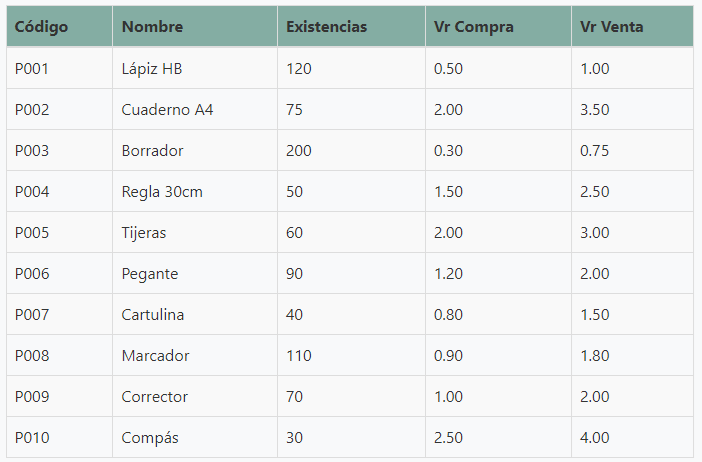Accounting Dictionary - Letter T

- Tax: A compulsory payment made by individuals and businesses to the government, often used in financial reporting and accounting.
- Tax accounting: The process of preparing and filing tax returns, often used in financial reporting and accounting.
- Tax audit: An examination of a taxpayer's financial records to ensure compliance with tax laws, often used in financial reporting and accounting.
- Tax basis: The value of an asset or liability for tax purposes, often used in financial reporting and accounting.
- Tax benefit: A reduction in tax liability due to a specific tax provision or law, often used in financial reporting and accounting.
- Tax credit: A direct reduction in tax liability, often used in financial reporting and accounting.
- Tax deduction: An expense that can be subtracted from taxable income, often used in financial reporting and accounting.
- Tax deferred: A tax liability that is postponed until a future date, often used in financial reporting and accounting.
- Tax exemption: A provision that exempts certain individuals or businesses from paying taxes, often used in financial reporting and accounting.
- Tax filing: The process of submitting tax returns to the government, often used in financial reporting and accounting.
- Tax law: A law that governs the taxation of individuals and businesses, often used in financial reporting and accounting.
- Tax liability: The amount of taxes owed by an individual or business, often used in financial reporting and accounting.
- Tax planning: The process of minimizing tax liability through various strategies, often used in financial reporting and accounting.
- Tax rate: The percentage of income that is subject to taxation, often used in financial reporting and accounting.
- Tax return: A document that reports an individual's or business's income and tax liability, often used in financial reporting and accounting.
- Tax shelter: A provision that reduces tax liability, often used in financial reporting and accounting.
- Taxable income: The amount of income that is subject to taxation, often used in financial reporting and accounting.
- Taxation: The process of imposing taxes on individuals and businesses, often used in financial reporting and accounting.
- Technical accounting: The application of accounting principles and standards to specific transactions and events, often used in financial reporting and accounting.
- Temporary account: An account that is used to record temporary or one-time transactions, often used in financial reporting and accounting.
- Temporary difference: A difference between the financial reporting and tax basis of an asset or liability, often used in financial reporting and accounting.
- Term loan: A loan that is repaid over a fixed period of time, often used in financial reporting and accounting.
- Term sheet: A document that outlines the terms of a loan or investment, often used in financial reporting and accounting.
- Termination: The end of a contract or agreement, often used in financial reporting and accounting.
- Test of reasonableness: A test used to determine whether a transaction or event is reasonable and justifiable, often used in financial reporting and accounting.
- Theft: The unauthorized taking of assets or property, often used in financial reporting and accounting.
- Third-party audit: An audit conducted by an independent third party, often used in financial reporting and accounting.
- Time value of money: The concept that money received today is worth more than the same amount received in the future, often used in financial reporting and accounting.
- Time-weighted return: A measure of investment performance that takes into account the timing of cash flows, often used in financial reporting and accounting.
- Timing difference: A difference between the financial reporting and tax basis of an asset or liability, often used in financial reporting and accounting.
- Total asset turnover: A ratio that measures a company's ability to generate sales from its assets, often used in financial reporting and accounting.
- Total debt: The total amount of debt owed by a company, often used in financial reporting and accounting.
- Total equity: The total amount of equity owned by shareholders, often used in financial reporting and accounting.
- Total expense: The total amount of expenses incurred by a company, often used in financial reporting and accounting.
- Total income: The total amount of income earned by a company, often used in financial reporting and accounting.
- Total liability: The total amount of liabilities owed by a company, often used in financial reporting and accounting.
- Total revenue: The total amount of revenue earned by a company, often used in financial reporting and accounting.
- Total return: The total return on investment, including dividends and capital gains, often used in financial reporting and accounting.
- Total shareholder return: The total return on investment for shareholders, often used in financial reporting and accounting.
- Trade account: An account that is used to record transactions with suppliers and customers, often used in financial reporting and accounting.
- Trade credit: Credit extended to customers or suppliers, often used in financial reporting and accounting.
- Trade debt: Debt owed to suppliers or customers, often used in financial reporting and accounting.
- Trade discount: A discount offered to customers or suppliers, often used in financial reporting and accounting.
- Trade finance: The financing of international trade, often used in financial reporting and accounting.
- Trade mark: A symbol or logo that identifies a company or product, often used in financial reporting and accounting.
- Trade name: A name used to identify a company or product, often used in financial reporting and accounting.
- Trade payable: An amount owed to suppliers, often used in financial reporting and accounting.
- Trade receivable: An amount owed by customers, often used in financial reporting and accounting.
- Trading account: An account that is used to record transactions related to buying and selling securities, often used in financial reporting and accounting.
- Transaction: A business event or exchange of value, often used in financial reporting and accounting.
- Transaction cost: The cost of buying or selling a security, often used in financial reporting and accounting.
- Transfer: The movement of assets or liabilities from one account to another, often used in financial reporting and accounting.
- Transfer price: The price at which goods or services are transferred between companies, often used in financial reporting and accounting.
- Treasury: The department responsible for managing a company's cash and investments, often used in financial reporting and accounting.
- Treasury bill: A short-term debt instrument issued by the government, often used in financial reporting and accounting.
- Treasury bond: A long-term debt instrument issued by the government, often used in financial reporting and accounting.
- Treasury note: A medium-term debt instrument issued by the government, often used in financial reporting and accounting.
- Treasury stock: Stock that is held by a company for future use, often used in financial reporting and accounting.
- Trial balance: A list of all general ledger accounts and their balances, often used in financial reporting and accounting.
- True and fair view: A concept that requires financial statements to present a true and fair view of a company's financial position and performance, often used in financial reporting and accounting.
- Trust: A fiduciary relationship in which one party holds assets for the benefit of another party, often used in financial reporting and accounting.
- Trust account: An account that is used to hold assets for the benefit of another party, often used in financial reporting and accounting.
- Trustee: A person or organization that holds assets for the benefit of another party, often used in financial reporting and accounting.
- Turnover: The amount of sales or revenue generated by a company, often used in financial reporting and accounting.
- Turnover ratio: A ratio that measures a company's ability to generate sales from its assets, often used in financial reporting and accounting.
- Type of account: A classification of accounts based on their characteristics, often used in financial reporting and accounting.
- Type of asset: A classification of assets based on their characteristics, often used in financial reporting and accounting.
- Type of business: A classification of businesses based on their characteristics, often used in financial reporting and accounting.
- Type of capital: A classification of capital based on its characteristics, often used in financial reporting and accounting.
- Type of debt: A classification of debt based on its characteristics, often used in financial reporting and accounting.
- Type of equity: A classification of equity based on its characteristics, often used in financial reporting and accounting.
- Type of expense: A classification of expenses based on their characteristics, often used in financial reporting and accounting.
- Type of income: A classification of income based on its characteristics, often used in financial reporting and accounting.
- Type of investment: A classification of investments based on their characteristics, often used in financial reporting and accounting.
- Type of liability: A classification of liabilities based on their characteristics, often used in financial reporting and accounting.
- Type of revenue: A classification of revenue based on its characteristics, often used in financial reporting and accounting.
- Type of security: A classification of securities based on their characteristics, often used in financial reporting and accounting.






